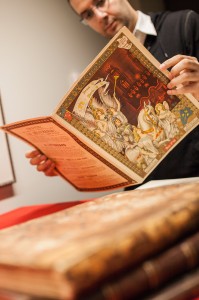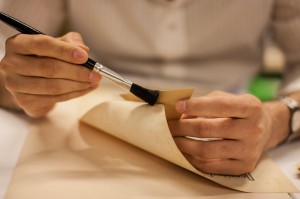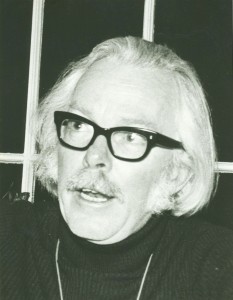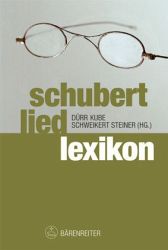“When photocopying, spiritual guidance is great but you may still have to do the math.” –David Curtis
Monthly Archives: August 2012
Academic integrity in the Music Library
To assist with the Schulich School of Music’s first-year orientation process, I’ve identified a few resources that deal with academic integrity. Entering a new academic environment with expectations of research can be bewildering for new students, so having a few guidelines can help clarify expectations.
What I really appreciate about the School of Music is its emphasis on academic integrity as a characteristic of good scholarly citizenship. A student, when writing a paper, making a presentation, or giving a lecture-recital, is joining a ongoing scholarly conversation. Acknowledging one’s sources is an act that shows respect for one’s listener/reader and for the experts one has drawn on. It also compels respect for the new author who engages ethically with the conversation.
Here are a few resources we in the Library recommend for starting off on the right foot:
- Music style guides and citation manuals
A subject guide compiled by the Music Library staff with lists of resources that deal with the thorny issues of dealing with music in print or in presentations. - Charles Lipson’s book Doing Honest Work in College (on reserve in the Music Library)
An easy-to-read, clear overview of note-taking techniques, paraphrasing, quotation, and bibliographic citation, with a summary of correct citation style for the principal types of sources (books, journal articles, sections of books, etc.) in a variety of styles including Chicago, MLA, and APA.
- McGill academic integrity: Keeping It Honest
The scenarios section of this online tutorial brings up issues beyond paper-writing, which might prove eye-opening for students. See how the principle of academic integrity applies in various situations, such as exams, group work, homework, lab reports, etc.
And remember to speak with your profs, TAs, or a library staff member for any clarification.
Paul Pedersen Collection finding aid
The Paul Pedersen Collection archive finding aid is now available on-line!
Professor Pedersen is a composer, pedagogue and former dean of both the Schulich School of Music at McGill University and the Faculty of Music at the University of Toronto.
The Collection, housed in the Marvin Duchow Music Library’s rare book and special collections room measures 18 linear feet and contains over 8000 items. It consists of professional materials that span much of Paul Pedersen’s career in music and education including compositional sketches and drafts, literary writings, teaching materials, photographs, correspondence, etc.
For access to the collection, Monday-Friday, 9-5, please contact Cynthia Leive for an appointment.
New thematic catalogue of Schubert Lieder
I made a felicitous discovery late yesterday while scanning the Library’s new acquisitions shelf: Schubert Liedlexikon, prepared by Walther Dürr, Michael Kube, Uwe Schweikert, and Stefanie Steiner. It’s a wonderful new thematic catalogue of all of Schubert’s songs. Following Otto Erich Deutsch’s indexing of Schubert’s works, the book arranges the songs chronologically by date of composition. Each entry provides the title, Deutsch number, name of poet, a thematic incipit, the full text (with German translations of those few foreign-language texts Schubert set), and a brief discussion of the text and music. A brief closing note gives the vocal range of the piece (in the original key), its location in both the Neue Schubert-Ausgabe (the more recent Schubert collected works edition) and the 7-volume Peters edition, source of the original text, and a brief bibliography for further reading.
In the appendix you’ll find brief bios of the poets with a list of their settings by Schubert. Three indices provide further access to people, both mythological (Achilles) and real (J. R. Zumsteeg), song titles, and authors of the entries.
Being a Bärenreiter publication, the type and presentation are immaculate and the music excerpts are compact but legibly reproduced. Highly recommended for students and lovers of Lied who read German!
Donald Mackey Collection finding aid
The Donald Mackey Collection archival finding aid is now available on-line!
Professor Mackey was a Montreal organist and choir conductor. He taught at McGill University for thirty years.
The Collection, housed in the Marvin Duchow Music Library’s rare book and special collections room, includes over 600 items and consists of Donald Mackey’s and the Renaissance Singers of Montreal’s complete portfolio of CBC broadcast programmes and radio scripts. It also contains documentary artifacts including correspondence, concert programmes, photographs and special projects that chronicle Mackey’s musical career and life in Montreal.
For access to the collection, Monday-Friday, 9-5, please contact Cynthia Leive for an appointment.
Sibley Music Library’s Preservation Workshop and a McGill Music Library sheet music collection
 Hello! My name is Houman Behzadi and I am very excited to share one of my recent projects at the Marvin Duchow Music Library with you. During the previous academic year, you might have seen me working at the fourth floor audio/visual reserves or the third floor reference desk. I am afraid, however, that I will be less visible for the next few months as I’ll be spending most of my time “behind the scenes” working in our Rare Book and Special Collections Room.
Hello! My name is Houman Behzadi and I am very excited to share one of my recent projects at the Marvin Duchow Music Library with you. During the previous academic year, you might have seen me working at the fourth floor audio/visual reserves or the third floor reference desk. I am afraid, however, that I will be less visible for the next few months as I’ll be spending most of my time “behind the scenes” working in our Rare Book and Special Collections Room.
Please allow me to tell you a little bit about my background: I hold a Master’s degree in Violin Solo Performance and Literature from the University of Western Ontario and will soon start my second year of a Masters of Library and Information Studies (MLIS) at McGill. My work and study have been in the areas of violin and vocal performance and pedagogy, historical performance practice, music printing and publishing, rare and antiquarian books and scores, and most recently physical conservation and digital preservation. In addition to being employed at the Music Library, I work at the McGill’s Rare Books and Special Collections (http://www.mcgill.ca/library/library-using/branches/rarebooks/) where I have the good fortune of being able to work with rare and antiquarian books and documents.
About a year ago, my supervisor at the Music Library introduced me to a large collection of 19th century French sheet music donated to us by the National Gallery (http://www.gallery.ca/en/) and Library Archives Canada (http://www.collectionscanada.gc.ca/index-e.html/). Two things about this collection caught my attention immediately: first, the richness and beauty of the lithography, and second, the inappropriate conditions in which it had been originally stored. To be more precise, every piece of sheet music had been glued, from its four corners, to highly acidic cardboard. If sheet music publication dates falls around the end of the 19th or the beginning of 20th century, it is likely the attached cardboard will contribute to the discoloration and brittleness of the sheet music. A major step towards the preservation of this fine collection would be to detach each item from its acidic backing (without causing any damage to the item), store it in an acid-free folder and then, along with other sheet music pieces, house it in an acid-free box.
Anticipating some involvement in both the aforementioned project and various other tasks in our Rare Book and Special Collections Room, I felt the need to further educate myself and learn about best practices in the field. Earlier this year, I received an email message through the listserv of the Music Library Association (http://musiclibraryassoc.org/default.aspx) regarding the possibility of attending a Music Preservation Workshop at the Sibley Music Library in Rochester, New York. The Sibley Music Library (http://www.esm.rochester.edu/sibley/) is the largest academic music library in the United States and happens to have its own preservation/conservation laboratory directed by Alice Carli. I managed to take a week off from work to travel to Rochester and attend the workshop. Working under Alice’s direction proved to be an invaluable experience!
Six students in total took part. This meant we got a great deal of personal attention from the instructor. The major areas addressed were:
- Sibley Music Library’s workflow (including the digitization process and their online depository: https://urresearch.rochester.edu/home.action)
- Photocopying and scanning brittle and problematic books or scores
- Discussing various formats and appropriate preservation structures in a music library
- Tour of the Ruth T. Watanabe Special Collections Department (a.k.a. “the vault”! This was by far the most impressive rare music room I had ever come across! For more information please visit: http://www.esm.rochester.edu/sibley/specialc/about.php)
- Conservation products and suppliers
- Guarding and pamphlet binding
- Binding of unusual formats
- Perfect and double-fan binding
- Paper conservation
- Sewing in signatures
- Traditional binding from scratch (This procedure took approximately two full days from start to finish. Having bound a book, I now have so much more appreciation for the art of book binding, in particular antiquarian binding that is rare to come across nowadays.)
- The importance of the organizational vision and mission statements
- Copyright issues and their implication on digitization policies
- Disaster planning
- Mold removal
- De-acidification (in-house or professional)
In addition to the list of the subjects mentioned above, each student was asked to bring examples of problem areas he/she was dealing with in his/her respective music library. I was grateful for the chance to discuss a variety of techniques with my instructor and colleagues and to learn about best practices I could utilize in our Rare Book and Special Collections Room. My goal was to brainstorm, experiment, and learn. Overall, this workshop provided me with the fundamental knowledge and skills I needed to start working on our sheet music collection as well as other rare and antiquarian material in need of care. Furthermore, I learned about other advanced courses and professional conservation workshops I could attend in the future. I look forward to participating in them when the opportunity arises.
We are very excited about the work we’re doing and the progress we’ve made in the Rare Book and Special Collections Room. Please stay tuned for other news regarding this collection!
Kelsey Jones Collection finding aid
 The Kelsey Jones Collection archive finding aid is now available on-line!
The Kelsey Jones Collection archive finding aid is now available on-line!
Professor Jones was a composer, pianist, harpsichordist and pedagogue at McGill University.
The Collection, housed in the Marvin Duchow Music Library’s rare book and special collections room, consists of compositional sketches, drafts and texts for virtually all of his major works. It also contains selected correspondence, concert programmes and some personal papers.
For access to the collection, Monday-Friday, 9-5, please contact Cynthia Leive for an appointment.
Personal Librarian Project
The Music Library is expanding a program it launched last year, the Personal Librarian Project. This project aims to pair each incoming music student with a music librarian. Last year, we approached only undergraduate students; this year we’re reaching out to new graduate students as well. Our hope is that having a personal contact will encourage new students to explore the variety and depth of resources available at McGill and gain greater confidence in their use of the Library as they move through their studies.
Of course, the project benefits the Library as well. Conversations with students keep us alert to their research and performance interests. This knowledge helps the Library staff make informed decisions about services, facilities, and collection development.
If you’re a new student, keep an eye out for an email invitation from your Music Library librarian. And returning students, we are looking forward to continuing our conversations with you as well!
Academic Charts Online (ACO)
 We are pleased to announce the acquisition of Academic Charts Online (ACO), a new database providing access to selected international chart listings (Billboard, etc.) covering the last 60 years. Click here. As always, you can also obtain access through the classic library catalogue and must be connected to the McGill network. Please let us know what you think and whether this resource will be helpful to you.
We are pleased to announce the acquisition of Academic Charts Online (ACO), a new database providing access to selected international chart listings (Billboard, etc.) covering the last 60 years. Click here. As always, you can also obtain access through the classic library catalogue and must be connected to the McGill network. Please let us know what you think and whether this resource will be helpful to you.
Living bibliography of books on popular music + two to recommend
In 2010, the American Musicology Society (AMS) Popular Music Study Group started a representative bibliography of books on popular music: http://grove.ufl.edu/~amspop/bibliography.html
It is not a comprehensive list but does include a number of ground-breaking models and places to begin research in popular music. The first part of the list is divided into the following categories:
A. Overviews: Research Guides, Disciplinary Assessments, and Methodologies
B. Production: Industry, Media, Sound, Performance
C. Consumption: Audiences, Geographies, and Identity Politics
D. Genres
E. Histories
F. Biographies: Single-Artist Studies
The document is a “living” document and therefore anyone can write to the Group to suggest adding new material.
From this list, I have recently read:
Spicer, Mark and John Covach. Sounding Out Pop: Analytical Essays in Popular Music. Ann Arbor: University of Michigan Press, 2010.
This collection of articles contains several excellent analytical approaches to popular music in particular those exploring the compositional processes of Leiber & Stoller and the Coasters, Roy Orbison, Marvin Gaye and the Police.
Zak, Albin J. III. I Don’t Sound Like Nobody: Remaking Music in 1950s. Ann Arbor: University of Michigan Press, 2010.
This work looks at the “sound of [the] genesis” [Introduction, p. 7] of rock and roll by reviewing the range of musical experimentation and technological change in popular music of the fifties.



